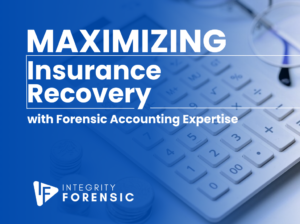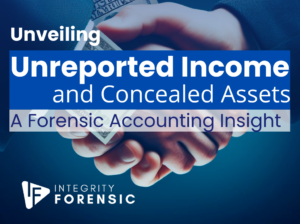In today’s fast-paced business world, fraud is a significant concern for many organizations. Fraud can cause severe financial losses and damage to a company’s reputation. To mitigate these risks, many businesses are turning to forensic audits. A forensic audit is a specialized examination of financial records and other documents to uncover any evidence of fraud, embezzlement, or other financial crimes. In this blog, we’ll explore the advantages of a forensic audit for fraud detection and how forensic accountants stay ahead of fraudsters.
Proactive Detection: One of the most significant advantages of a forensic audit is proactive fraud detection. A forensic audit can identify fraudulent activity before it becomes a significant problem. Forensic accountants use various techniques such as data analysis, interviews, and document review to uncover potential fraud schemes.
Uncovering Hidden Fraud: Fraudsters can be very clever and hide their activities in complex financial transactions. A forensic audit can uncover hidden fraud schemes by thoroughly examining financial records and uncovering any suspicious activity.
Protection Against Future Fraud: Forensic audits can provide recommendations for improving internal controls and procedures to prevent future fraud. This can include implementing new policies and procedures or upgrading existing ones to prevent similar fraud schemes from occurring in the future.
Expert Testimony: If the fraud case goes to court, a forensic accountant can provide expert testimony to support your case. They can explain complex financial transactions and provide evidence of fraudulent activity in court.
Cost-Effective: While forensic audits can be costly, they can save businesses money in the long run by uncovering fraudulent activity early on. The cost of a forensic audit is often much less than the cost of significant financial losses from fraud.
Advanced Technology: Forensic accountants use advanced technology to detect and prevent fraud. This can include data analysis software, forensic accounting tools, and other technology to help uncover fraudulent activity.
Experienced Professionals: Forensic accountants are highly trained professionals with extensive experience in financial investigations. They understand the techniques that fraudsters use to hide their activities and can quickly uncover fraudulent schemes.
Maintaining Confidentiality: Forensic accountants understand the importance of maintaining confidentiality during financial investigations. They follow strict ethical guidelines and maintain the confidentiality of their client’s financial information.
Collaboration: Forensic accountants often work closely with other professionals, including lawyers, law enforcement agencies, and other experts, to uncover fraud schemes and gather evidence.
Continuous Learning: Forensic accountants are constantly learning and improving their skills to stay ahead of fraudsters. They stay up-to-date with the latest fraud trends, technology, and forensic accounting techniques to provide the best possible service to their clients.
A forensic audit is a powerful tool for detecting and preventing fraud in any organization. Forensic accountants can provide proactive fraud detection, uncover hidden fraud schemes, and protect businesses against future fraud. They use advanced technology, collaborate with other professionals, and maintain confidentiality during investigations. By staying ahead of fraudsters and continuously improving their skills, forensic accountants can help businesses mitigate the risks of fraud and financial crime.
At Integrity Forensic, we have a team of experienced forensic accountants to assist you. Call now for a free consultation: 855-673-9999 or send us a message at questions@integrityforensic.com.





